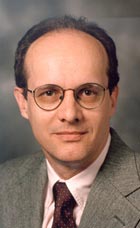| [http://tlpj.org/left_nav_interior.htm]
|
TLPJ Notifies St. Louis Airport of Imminent Lawsuit for Illegal Asbestos Removal Local Citizens Seek Injunction, Penalties, and Cleanup for Over 300 Asbestos-Laden Buildings Demolished Using Experimental ‘Wet Method’
Trial Lawyers for Public Justice (TLPJ) and a grassroots environmental group provided notice today that they intend to sue the City of St. Louis and Lambert-St. Louis International Airport over the illegal and experimental use of the "wet method" of asbestos removal to demolish more than 300 buildings. TLPJ submitted a notice letter charging the city and its airport authority with violations of two federal environmental statutes on behalf of Families for Asbestos Compliance, Testing and Safety (FACTS), a grassroots group comprised mainly of Bridgeton, Missouri residents who live near the demolished buildings and are concerned about the public health danger of the asbestos fibers released by the demolitions. Asbestos is an extremely hazardous material that can cause cancer and other diseases that show up decades after the exposure occurs. "It’s outrageous that the city and its airport authority exposed the public to unnecessary health risks by using an unproven asbestos removal method to save money," said TLPJ Environmental Enforcement Director Jim Hecker. "This will be the first legal action against a city for endangering public health by deliberately evading federal asbestos safety standards. Local citizens are now exercising their right to enforce federal law and prevent further violations." In July 2004, TLPJ convinced the U.S. Environmental Protection Agency (EPA) to block the use of the same experimental wet method on an abandoned hotel in Fort Worth, Texas. Despite that victory, cities continue to pressure EPA to allow use of the wet method to demolish tens of thousands of abandoned buildings in urban areas nationwide. Instead of removing all asbestos from buildings before they were demolished, as federal regulations under the Clean Air Act require, the airport authority left much of the asbestos in place and merely wet it down with a hose during demolition. EPA’s own scientists have stated that "there is no known safe level of asbestos exposure" and there is "substantial evidence that even with the wetting of [asbestos-containing materials] there will still be release of airborne asbestos fibers."
The imminent lawsuit will seek testing to determine to what extent the releases may have contaminated the soil in the community with asbestos, and how much asbestos may be released into the air again when ground around the airport is disturbed. "The Airport Authority used the illegal wet method on three houses within a block of my home," said Carole Donnelly, a Bridgeton resident and member of FACTS. "I am outraged because no one told me that this method was illegal and because public health officials failed to protect my family’s health." "I have three children who live in the neighborhood where houses were illegally demolished," said Barbara Loehr, another Bridgeton resident and FACTS member. "Now I have to worry that decades later my children may become ill from exposure to asbestos in the air and soil." "The city and the airport authority conducted an illegal and immoral human experiment on our community without our knowledge or consent," said FACTS President and Bridgeton resident Sean Donnelly, who is Carole’s son. "We intend to bring this citizen suit to protect public health and to hold the city and airport authority accountable for their violations of federal environmental laws." In its notice of intent to sue, FACTS alleges that the city and the airport authority have violated the federal Clean Air Act more than 300 times by failing to use federally-required methods for removing asbestos before demolition. FACTS also charges that the released asbestos may have contaminated the soil and created an imminent and substantial endangerment to public health and the environment in violation of the federal Resource Conservation and Recovery Act, which regulates releases of hazardous wastes. Both statutes require the sending of a notice letter before a lawsuit can be filed. FACTS intends to seek civil penalties payable to the federal government for past Clean Air Act violations, an injunction preventing further violations, and an order requiring the city and the airport authority to evaluate and clean up contaminated soil. FACTS is not seeking damages for personal injuries to its members. TLPJ’s co-counsel in this case are Richard Miller of Monsees, Miller, Mayer, Presley & Amick in Kansas City, Missouri, Scott Frost of Baron & Budd, P.C. in Dallas, and Bruce Morrison of the Great Rivers Environmental Law Center in St. Louis. A copy of the notice letter, a chronology of events, and a fact sheet quoting EPA’s own statements about asbestos contamination are posted on TLPJ’s web site at www.tlpj.org. ### Trial Lawyers for Public Justice is the only public interest law firm dedicated to using trial lawyers’ skills and resources to advance the public good. Founded in 1982, TLPJ utilizes a network of more than 3,000 of the nation’s outstanding trial lawyers to pursue precedent-setting and socially significant litigation. TLPJ has a wide-ranging litigation docket in the areas of consumer rights, worker safety, civil rights and liberties, toxic torts, environmental protection, and access to the courts. TLPJ is the principal project of The TLPJ Foundation, a not-for-profit membership organization headquartered in Washington, DC, with a West Coast office in Oakland, California. The TLPJ web site address is www.tlpj.org. TLPJ’s Missouri State Coordinator is Richard Miller, tel. 816-361-5550. Great Rivers Environmental Law Center is a nonprofit public interest environmental organization whose mission includes aiding and advising citizens and organizations in asserting and defending their interests in environmental values before administrative officials, and, as a last resort, before the courts. The Center’s web site address is www.greatriverslaw.org. |
